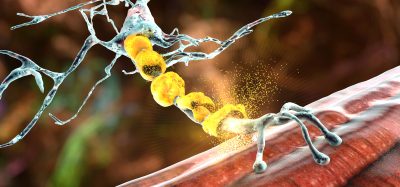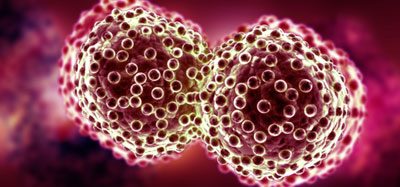AI method for generating new proteins could accelerate drug development
Posted: 31 March 2021 | Victoria Rees (Drug Target Review) | No comments yet
A novel artificial intelligence (AI) technique called ProteinGAN has shown success at studying well known proteins to develop new ones.

New research from Chalmers University of Technology, Sweden, has demonstrated that artificial intelligence (AI) is now capable of generating novel, functionally active proteins.
“What we are now able to demonstrate offers fantastic potential for a number of future applications, such as faster and more cost-efficient development of protein-based drugs,” said Associate Professor Aleksej Zelezniak, lead researcher of the study.
According to the researchers, protein-based drugs are very common – the diabetes drug insulin is one of the most prescribed. Some of the most expensive and effective cancer medicines are also protein-based, as well as the antibody formulas currently being used to treat COVID-19. Current methods used for protein engineering rely on introducing random mutations to protein sequences. However, with each additional random mutation introduced, the protein activity declines.
“Consequently, one must perform multiple rounds of very expensive and time-consuming experiments, screening millions of variants, to engineer proteins and enzymes that end up being significantly different from those found in nature,” said Zelezniak. “This engineering process is very slow, but now we have an AI-based method where we can go from computer design to working protein in just a few weeks.”
The research group and collaborators developed an AI-based approach called ProteinGAN, which uses a generative deep learning approach. In essence, the AI is provided with a large amount of data from well-studied proteins; it studies this data and attempts to create new proteins based on it.
At the same time, another part of the AI tries to figure out if the synthetic proteins are fake or not. The proteins are sent back and forth in the system until the AI cannot tell apart natural and synthetic proteins anymore.
In this study, this technique was used to produce highly diverse protein variants with naturalistic-like physical properties that could be tested for their functions.
The researchers say that the new AI-based approach is of importance for developing efficient industrial enzymes as well as new protein-based therapies, such as antibodies and vaccines.
Assistant Professor Martin Engqvist, who was involved in designing the experiments to test the AI synthesised proteins, said: “Accelerating the rate at which we engineer proteins is very important for driving down development costs for enzyme catalysts. This is the key for realising environmentally sustainable industrial processes and consumer products and our AI model, as well as future models, will enable that. Our work is a vital contribution in that context.”
The next step for the researchers is to explore how the technology could be used for specific improvements to protein properties, such as increased stability, something which could have great benefit for proteins used in industrial technology.
The results of the study were published in Nature Machine Intelligence.
Related topics
Artificial Intelligence, Biopharmaceuticals, Informatics, Protein, Proteomics
Related organisations
Chalmers University of Technology







